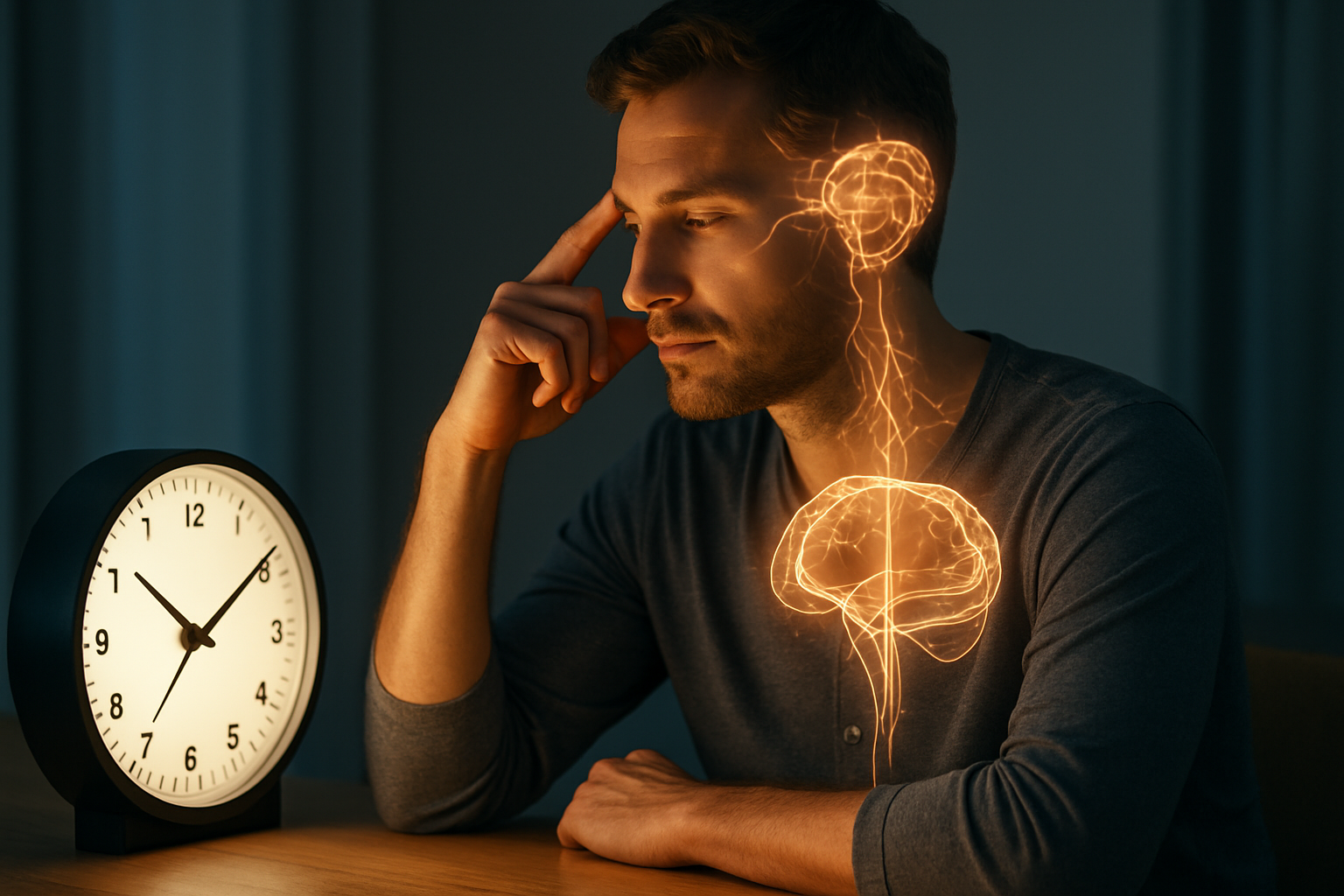Chronobiology: Aligning Your Life with Your Inner Clock
The rhythm of life isn't just a poetic metaphor—it's a scientific reality. Have you ever wondered why you feel energized at certain times of the day and sluggish at others? Or why jet lag can throw your entire system out of whack? The answer lies in the fascinating field of chronobiology, a discipline that explores how our internal biological clocks influence our physical and mental well-being. Let's delve into this captivating area of health science and discover how harmonizing with our natural rhythms can revolutionize our approach to wellness.

This intricate system is influenced by external cues called zeitgebers, with light being the most powerful. As our ancestors evolved in sync with the rising and setting sun, our bodies developed to anticipate and prepare for changes in our environment. This internal timekeeping mechanism affects everything from hormone production and body temperature to cognitive function and metabolism.
The Vital Role of Circadian Rhythms in Health
Understanding and respecting our circadian rhythms is crucial for maintaining optimal health. Research has shown that disruptions to these natural cycles can have far-reaching consequences. Shift workers, for instance, often experience higher rates of cardiovascular disease, obesity, and certain cancers due to chronic circadian misalignment.
Our internal clocks influence the timing of numerous physiological processes. Cortisol, often called the stress hormone, typically peaks in the morning to help us wake up and face the day’s challenges. Melatonin, the sleep hormone, rises in the evening to prepare us for rest. Even our digestive system operates on a schedule, with enzyme production and nutrient absorption varying throughout the day.
Chronotypes: Are You a Lion, Bear, Wolf, or Dolphin?
Not all internal clocks tick to the same rhythm. Chronotypes, or individual differences in circadian rhythms, can be broadly categorized into four animal-inspired groups:
Lions: Early risers who are most productive in the morning
Bears: Those who follow the solar cycle, waking with the sun and sleeping when it’s dark
Wolves: Night owls who hit their stride in the evening hours
Dolphins: Light sleepers who may struggle with insomnia
Understanding your chronotype can help you optimize your daily schedule for peak performance and well-being. While societal demands often force us into a one-size-fits-all rhythm, acknowledging and working with your natural tendencies can lead to improved energy levels, productivity, and overall health.
Chrono-Nutrition: Timing Your Meals for Optimal Health
The concept of chrono-nutrition applies chronobiological principles to our eating habits. It suggests that when we eat can be just as important as what we eat. Our metabolism, insulin sensitivity, and even the gut microbiome exhibit daily rhythms, influencing how our bodies process and utilize nutrients.
Research indicates that aligning our meal times with our circadian rhythms may have significant health benefits. For example, studies have shown that consuming a larger breakfast and a lighter dinner can lead to better weight management and improved metabolic health. This approach aligns with our body’s natural insulin sensitivity, which is typically higher in the morning and decreases throughout the day.
Moreover, maintaining consistent meal times can help reinforce our circadian rhythms, potentially improving sleep quality and overall health. It’s not just about following a strict eating schedule, but rather about creating a harmonious relationship between our dietary habits and our internal biological clocks.
Practical Applications of Chronobiology in Daily Life
Incorporating chronobiological principles into our daily routines can yield substantial benefits for our health and well-being. Here are some practical ways to align your lifestyle with your internal clock:
Chronobiology in Action: Tips for Circadian Harmony
-
Establish a consistent sleep schedule, even on weekends
-
Expose yourself to natural light early in the day to reinforce your wake cycle
-
Avoid blue light from screens in the evening to support melatonin production
-
Schedule important tasks and meetings during your peak alertness hours
-
Consider your chronotype when planning your daily routine
-
Practice time-restricted eating, aligning your meals with your body’s natural rhythms
-
Create a relaxing bedtime routine to signal to your body that it’s time to wind down
As we continue to unravel the mysteries of our internal clocks, the potential for chronobiology to transform our approach to health and wellness becomes increasingly clear. By understanding and respecting our natural rhythms, we can optimize our physical performance, mental acuity, and overall well-being. The key lies in listening to our bodies and aligning our lifestyles with the intricate dance of our internal timepieces.
Embracing chronobiology doesn’t mean rigidly adhering to a prescribed schedule. Instead, it’s about becoming more attuned to your body’s natural ebbs and flows, and making informed choices that support your unique biological rhythms. As we synchronize our lives with our internal clocks, we open the door to a more balanced, energized, and healthful existence.





